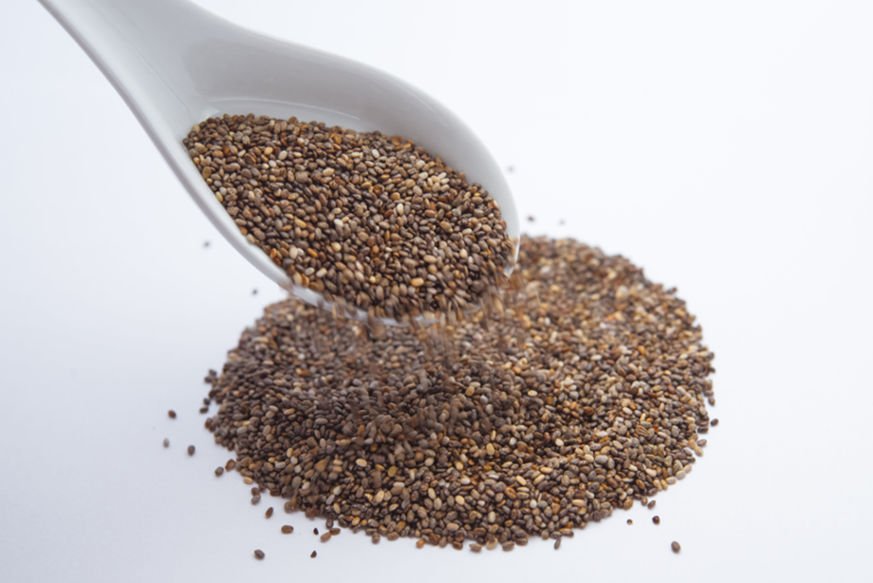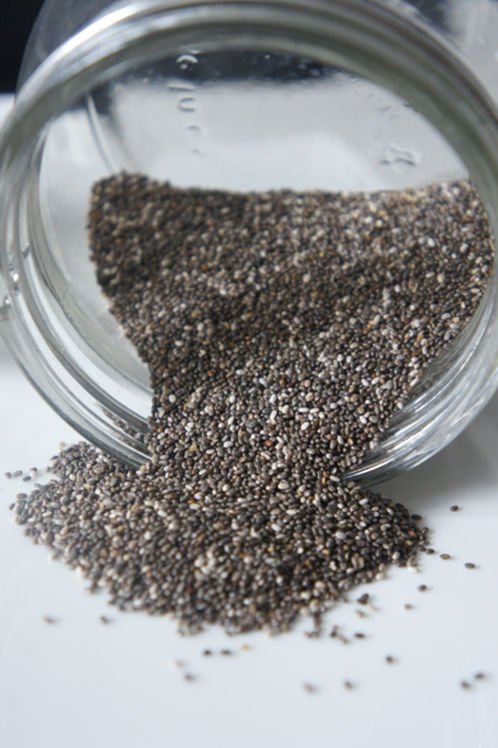Understanding of chia seeds
Food chia seeds are closely related to the chia plants made popular by Chia Pets, but they are not the same seed. Chia seeds are small round seeds that can be black, brown, or white. They are gathered from a flowering plant in the mint family known as Salvia hispanica. This plant is native to parts of Mexico and the country of Guatemala.

Why do chia seeds provide health benefits?
Chia seeds are little, but they are some of the best seeds to consume. Few foods are as nutrient-dense as this, according to Kopp.
The seeds of Chia are a great way to get a variety of nutrients. One ounce of it can contribute toward your daily value of fiber, protein, minerals, and B vitamins.
| Nutrient | Amount of Chia Seeds in 1 Ounce (28 Grams) |
| Calories | 138 |
| Protein | 4.4 grams |
| Fat | 8.6 grams (of which 0.9 grams are saturated) |
| Carbohydrates | 12.3 grams (11 of which are fiber) |
| Fiber | 10.6 grams |
| Calcium | 177 milligrams |
| Phosphorus | 265 milligrams |
| Magnesium | 95 milligrams |
| Potassium | 44 milligrams |
| Omega-3 Fatty Acids | 4.9 grams |
| Omega-6 Fatty Acids | 1.6 grams |
| Antioxidants | Moderate levels of various antioxidants |
| Vitamins | Small amounts of Vitamin C, Vitamin B3, and B1 |
Advantages of chia seeds

it offer a wealth of nutritional advantages. Firstly, They include a lot of fiber and omega-3 fatty acids. In the form of alpha-linolenic acid, or ALA, chia offers about the same quantity of omega-3 fatty acids as crushed flaxseed. They may support weight loss efforts.
this food is a great source of fiber, which lowers cholesterol, strengthens the heart, and benefits digestion. Fibre takes longer to digest and keeps you fuller for longer, which helps with weight loss and lowers your chance of getting diabetes or heart disease. A high-fiber diet has also been demonstrated to protect against colorectal cancer.
Help in the prevention of long-term diseases
- It may aid in the prevention of long-term illnesses like cancer, diabetes, weight gain, and heart disease, according to research. Human study findings indicate that may
- Decrease inflammation.
- Improve regulation of blood sugar levels.
- Reduce your blood pressure.
- Increase your blood’s level of omega-3 fatty acids.
- Reduce fats.
However, not every study comes to the same conclusion. For instance, one study examined the risk variables for disease in 76 individuals who were obese or overweight. For 12 weeks, the subjects were given either This food or a control group, which is a fake supplement mixed with water twice a day. The groups did not differ in terms of weight, blood pressure, cholesterol, or inflammation, according to the researchers.
Help weight loss
Sipping chia water, which is made from it and water, could encourage you to eat less. When It get wet, it swells up and takes up space in your stomach. Less hunger may occur, which may result in weight loss.
However, exercise carefully. Kopp warns, “Eating too many chia seeds can cause digestive problems.” “If you are dehydrated, the seeds will absorb the water in your stomach. Gas, discomfort, and constipation could result from this.
Better Levels of Blood Sugar
This food provides a lot of fiber. According to studies, fiber may help lower blood sugar levels and insulin resistance, which lowers the risk of type 2 diabetes and metabolic syndrome. It has also been discovered through research that bread causes a lower blood sugar response than regular bread, which helps to avoid elevated blood sugar.
Improved Heart Function
it contains quercetin, an antioxidant that can lower your chance of developing a variety of health problems, including heart disease. The high fiber content of the seeds can also help control excessive blood pressure, which lowers the risk of heart disease.
Did You Know about it?
- Although black and white these are available, their nutritional value is the same.
- When eating chia seeds, there are a few uncommon warnings. In 2014, a case report that was presented at the American College of Gastroenterology Annual Scientific Meeting garnered media attention when it described a patient who consumed a glass of water and then dried chia seeds. The blockage resulted from the seeds expanding within the esophagus. Eat chia seeds that have previously been soaked in liquid or that are served with a portion of moist food, like oatmeal or yogurt, as they immediately swell after absorbing liquid. Chia seeds should not be consumed on their own.
Summary
Chia seeds are a great source of nutrients, fiber, antioxidants, and omega-3 fat. They are also quite simple to prepare. Additionally, Chia seeds may help with weight loss and lower the risk of heart disease, according to studies. Before any clear conclusions can be drawn, however, more human subjects research is required.
Consider including chia seeds in your diet if you wish to gain the potential benefits of chia seeds. They taste fantastic in smoothies, oatmeal, yogurt, baked goods, and other dishes.

I’m a seasoned content creator with 6+ years of experience crafting engaging, SEO-optimized content that drives traffic and rankings. I excel in keyword research, link building, and guest posting, ensuring your brand reaches new heights.

